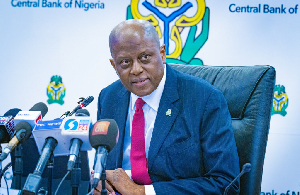The Lake Chad Basin is witnessing a renewed wave of violence as rival jihadist groups, Boko Haram’s Jama’atu Ahlis Sunna Lidda’awati wal-Jihad, JAS, and the Islamic State West Africa Province, ISWAP, engage in intense battles for control of strategic island settlements in Abadam and Kukawa Local Government Areas of Borno State.
According to an exclusive report by counter-insurgency expert and security analyst, Zagazola Makama on Sunday, the clashes occurred between November 5 and 8, 2025, across key islands identified as Sahel 1, Dogon Chuku, Mangari, and the riverine basins of Tumbun Gini, Tumbun Dalo, Tumbun Shanu, Mangari, and Dumba.
The report said Boko Haram fighters, led by commanders Hassan Buduma and Mohd Hassan, launched coordinated attacks on ISWAP positions using multiple motorized watercraft equipped with heavy weapons.
The group reportedly advanced from Tumbun Gini through the upper river basin, striking ISWAP bases in an early-morning assault described as “an amphibious attack in insurgent style.”
Sources said the offensive forced ISWAP fighters to abandon several camps and retreat towards mainland hideouts around Ali Jillimari, Metele, Kangarwa, and Gudumbali.
The number of casualties remains unclear, but intelligence surveillance reportedly detected several bodies floating in the water and others buried in shallow sand pits.
Makama’s report indicated that Boko Haram’s goal is to completely eliminate ISWAP from the Lake Chad islands and seize control of critical supply and smuggling routes connecting Nigeria, Niger, Chad, and Cameroon.
These corridors are believed to generate millions of naira through the extortion of fishermen, traders, and transport operators.
ISWAP had maintained dominance in the area since the 2021 death of Boko Haram leader Abubakar Shekau. However, the receding water levels in the Lake Chad Basin have reopened land routes and exposed old fishing settlements, creating new flashpoints for conflict.
Security sources warned that the latest clashes mark a shift from isolated skirmishes to a sustained territorial campaign. They cautioned that more ambushes, roadside bombs, and attacks on transport routes linking Metele, Kangarwa, and the Maiduguri–Damasak highway should be expected.
Communities in Kukawa and Abadam LGAs, including fishermen, transport operators, and farmers, are expected to face the immediate impact of the fighting as both factions continue retaliatory raids and disrupt local livelihoods.
Observers note that the Lake Chad Basin, long regarded as a difficult terrain for conventional military operations, has now become the centre of a violent struggle for power between the two extremist groups — a war that leaves civilians trapped between the rival forces and worsening humanitarian conditions.
General News of Sunday, 9 November 2025
Source: www.dailypost.ng
Boko Haram, ISWAP in fierce battle for control of Borno’s Lake Chad
Entertainment












